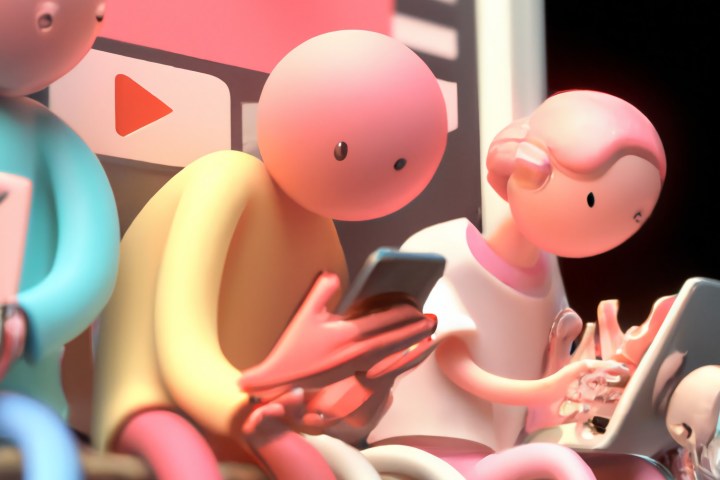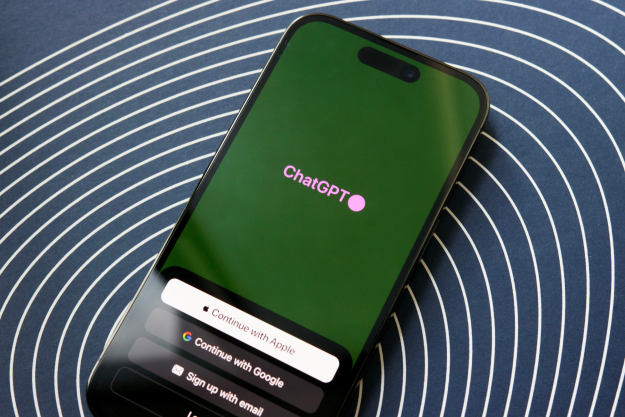OpenAI’s new tool can spot fake AI images, but there’s a catch
AI-generated images can spread misinformation and fool the public, but ChatGPT maker OpenAI says its new tool can root out fake pictures with unerring accuracy.

Digital Trends may earn a commission when you buy through links on our site. Why trust us?

By Alex Blake October 19, 2023 3:04AM
Images generated by artificial intelligence (AI) have been causing plenty of consternation in recent months, with people understandably worried that they could be used to spread misinformation and deceive the public. Now, ChatGPT maker OpenAI is apparently working on a tool that can detect AI-generated images with 99% accuracy.
According to Bloomberg, OpenAI’s tool is designed to root out user-made pictures created by its own Dall-E 3 image generator. Speaking at the Wall Street Journal’s Tech Live event, Mira Murati, chief technology officer at OpenAI, claimed the tool is “99% reliable.” While the tech is being tested internally, there’s no release date yet.
 MattVidPro AI
MattVidPro AIIf it is as accurate as OpenAI claims, it may be able to offer the public the knowledge that the images they are seeing are either genuine or AI-generated. Still, OpenAI did not appear to reveal how this tool will alert people to AI images, whether by using a watermark, a text warning, or something else.
It’s worth noting that the tool is only designed to detect Dall-E images, and it may not be able to spot fakes generated by rival services like Midjourney, Stable Diffusion, and Adobe Firefly. That might limit its usefulness in the grand scheme of things, but anything that can highlight fake images could have a positive impact.
Continuing development
 Dall-E / OpenAI
Dall-E / OpenAIOpenAI has launched tools in the past that were designed to spot content put together by its own chatbots and generators. Earlier in 2023 the company released a tool that it claimed could detect text made by ChatGPT, but it was withdrawn just a few months later after OpenAI admitted it was highly inaccurate.
As well as the new image-detection tool, OpenAI also discussed the company’s attempts to cut down on ChatGPT’s tendency to “hallucinate,” or spout nonsense and made-up information. “We’ve made a ton of progress on the hallucination issue with GPT-4, but we’re not where we need to be,” Murati said, suggesting that work on GPT-5 — the follow-up to the GPT-4 model that underpins ChatGPT — is well underway.
In March 2023, a slate of tech leaders signed an open letter pleading with OpenAI to pause work on anything more powerful than GPT-4, or risk “profound risks to society and humanity.” It seems that the request has fallen on deaf ears.
Whether OpenAI’s new tool will be any more effective than its last effort, which was canceled due to its unreliability, remains to be seen. What’s certain is that development work continues at a fast pace, despite the obvious risks.
Editors' Recommendations
Bing Chat just beat a security check to stop hackers and spammers ChatGPT’s new upgrade finally breaks the text barrier Meta is reportedly working on a GPT-4 rival, and it could have dire consequences Zoom adds ChatGPT to help you catch up on missed calls ChatGPT is violating your privacy, says major GDPR complaintIn ancient times, people like Alex would have been shunned for their nerdy ways and strange opinions on cheese. Today, he…
Google Bard could soon become your new AI life coach
Generative artificial intelligence (AI) tools like ChatGPT have gotten a bad rep recently, but Google is apparently trying to serve up something more positive with its next project: an AI that can offer helpful life advice to people going through tough times.
If a fresh report from The New York Times is to be believed, Google has been testing its AI tech with at least 21 different assignments, including “life advice, ideas, planning instructions and tutoring tips.” The work spans both professional and personal scenarios that users might encounter.
ChatGPT may soon moderate illegal content on sites like Facebook
GPT-4 -- the large language model (LLM) that powers ChatGPT Plus -- may soon take on a new role as an online moderator, policing forums and social networks for nefarious content that shouldn’t see the light of day. That’s according to a new blog post from ChatGPT developer OpenAI, which says this could offer “a more positive vision of the future of digital platforms.”
By enlisting artificial intelligence (AI) instead of human moderators, OpenAI says GPT-4 can enact “much faster iteration on policy changes, reducing the cycle from months to hours.” As well as that, “GPT-4 is also able to interpret rules and nuances in long content policy documentation and adapt instantly to policy updates, resulting in more consistent labeling,” OpenAI claims.
GPT-4.5 news: Everything we know so far about the next-generation language model
OpenAI's GPT-4 language model is considered by most to be the most advanced language model used to power modern artificial intelligences (AI). It's used in the ChatGPT chatbot to great effect, and other AIs in similar ways. But that's not the end of its development. As with GPT-3.5, a GPT-4.5 language model may well launch before we see a true next-generation GPT-5.
Here's everything we know about GPT-4.5 so far.

 Tfoso
Tfoso 




































